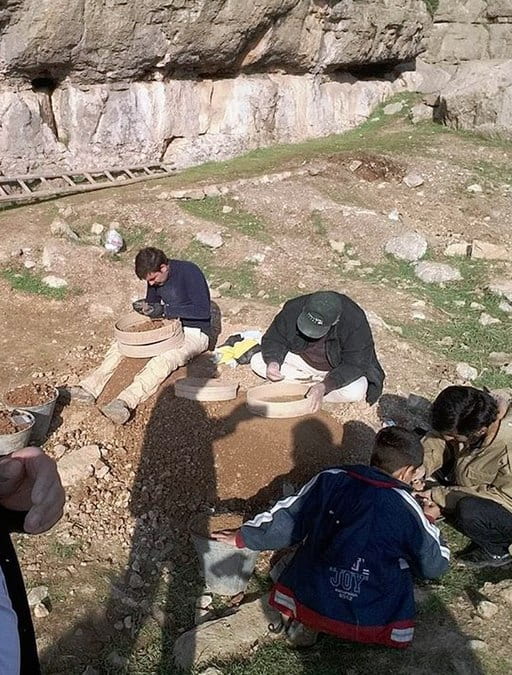Ever wondered how long modern humans have traipsed the earth? Hint: it’s been at least 100,000 years. We’re going to talk to Professor Nick Conard about his research on that question, and the origins of human culture in the Middle East, in particular. We will ask him to share stories from his archeological fieldwork, especially in Syria and Iran. Conard’s main areas of research include: Paleolithic archaeology; lithic, taphonomic, faunal and spatial analysis of archaeological sites; Pleistocene chronostratigraphy; evolution and dispersal of modern humans; environmental reconstruction and settlement history of western Eurasia and Africa, as well as the origins of agriculture and sedentism.

Bawa Yawan rock shelter, sieving with the traditional method at a Paleolithic site in Iranian Zagros, April 2017. Sfandiari, CC BY-SA 4.0 <https://creativecommons.org/licenses/by-sa/4.0>, via Wikimedia Commons
Professor Conard works in Germany, leading several European academic organizations focused on prehistory. He’s Professor and Head of the Department of Ur-und Fruhgeschichte und Archaologie der Mittalalters in Tuebingen, Germany. Additionally, he heads several museum collections, exhibits and the Senckenberg Centre for Human Evolution and Palaeoenvironment.
Conard earned bachelor’s degrees in anthropology and chemistry at the University of Rochester in 1983. In 1986 he was awarded an interdisciplinary master’s degree in physics, geology and anthropology in Rochester. His research focused on the initial applications of AMS radiocarbon dating and studies of 36Cl and Be10 in glacial ice. Following studies in Freiburg and Cologne, Conard earned master’s and doctoral degrees in anthropology at Yale University in 1988 and 1990, where he wrote his Ph.D. thesis on the archaeology of Neanderthals.